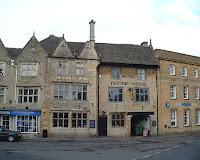Addicted to Laudanum rather than Love?
 A fascinating article in the latest edition of Romantic Times Magazine suggests that the dark hero who is wrestling with an addiction makes a strong romantic lead. With Regency heroes we certainly have plenty of addictions to choose from – gambling, alcohol, opium, anyone? But is this really attractive in a hero? Is it a sign of a character’s weakness or is his triumph over his dependency actually a sign of strength?
A fascinating article in the latest edition of Romantic Times Magazine suggests that the dark hero who is wrestling with an addiction makes a strong romantic lead. With Regency heroes we certainly have plenty of addictions to choose from – gambling, alcohol, opium, anyone? But is this really attractive in a hero? Is it a sign of a character’s weakness or is his triumph over his dependency actually a sign of strength?A study of real life Regency addicts isn’t altogether encouraging. Samuel Taylor Coleridge became, in the words of his friend and fellow addict Thomas de Quincey a “full-blown opium addict.” He originally turned to the drug as a painkiller and cure for physical illness, but soon resorted to it in times of stress and nervousness. It can’t have helped that he dissolved his opium in brandy. By 1817 he was clinically depressed and alienated from his family.
And then there was drink. Alcohol was an inherent part of Regency life (some would say an inherent part of British life and the British character, an interesting debate) and its use cut across all classes. The Gin Craze of the 18th century, for example, resulted in extreme drunkenness amongst the working classes. And who can forget the depictions of those boozy Georgian country squires who would put away three bottles of claret before dinner and another three afterwards? By the Regency period, drunkenness was common amongst men and considered socially acceptable. But is it heroic to drink on a heroic scale?
Gambling offers up Richard Barry, 7th Earl of Barrymore, known as the Rake of Rakes, a devotee of horse racing and prize fighting and famous for placing ludicrous bets on both sports. Both he and William Arden, 2nd Lord Alvanley, were so addicted to gambling that they racked up enormous debts and had to sell off land, houses and just about anything they could lay their hands on to pay their creditors.
But let’s not be totally negative here. When I studied heroes for my Masters dissertation one of the things that I realised was that these brilliant men (and brilliant, heroic women as well) so often had weaknesses as well as strengths. Horatio Nelson, for example, was an inspirational leader but his judgement failed him on an equally grand scale when it came to his affair with Emma Hamilton. Real live heroes can be flawed so is there room for fictional ones also to have their weaknesses?
I wrote about gambling in The Earl’s Prize and about laudanum addiction in Lord of Scandal where the heroine’s stepmother was an addict. In one of my forthcoming trilogy books The Undoing of a Lady the heroine’s mother was an alcoholic and the heroine herself can understand and is tempted by the slippery path her mother has taken. There’s no doubt that exploring addiction is a fascinating subject and in the hands of a skilled author a tale of addiction and redemption might well be powerful and compelling. I love dark heroes and dark heroines as well – both to read about and to write – so I will follow this development in the historical romance genre with interest. What do you think? Can a hero’s journey from addiction be uplifting and above all, romantic?



Comments
But a flawed hero - oh, yes.
Addiction is not pleasant -- either for the person or the family. Ultimately the addict cares more about his addiction than he does about his integrity or his code and there in lies the problem. To be a hero, the man must have an inner core of integrity. He must live bsome sort of code, even if the reader or the heroine does not understand code to begin with.
I have no problem with heavy drinking heroes, gambling or other vices. I do have a problem when it crosses the line. He might get very close, but it does not consume him.
I do think that Nelson had a lot in common with Mark Antony. Emma was definitely his Cleopatra. (But don't get me started on Norfolk history *g*)
My WIP, which is set in Hong Kong, deals with opium smuggling and its abuses, and a secondary character is an addict whose love of the drug gets her into big trouble, but I didn't throw it in there for thrills (the overarching theme is a critique of British Imperialism).
As the child of an addict, I don't take addiction to anything lightly, but I hope that in fiction, we try to present as realistic a view of the unsavory bits of life as possible while maintaining the genre's boundaries (ie; the HEA).